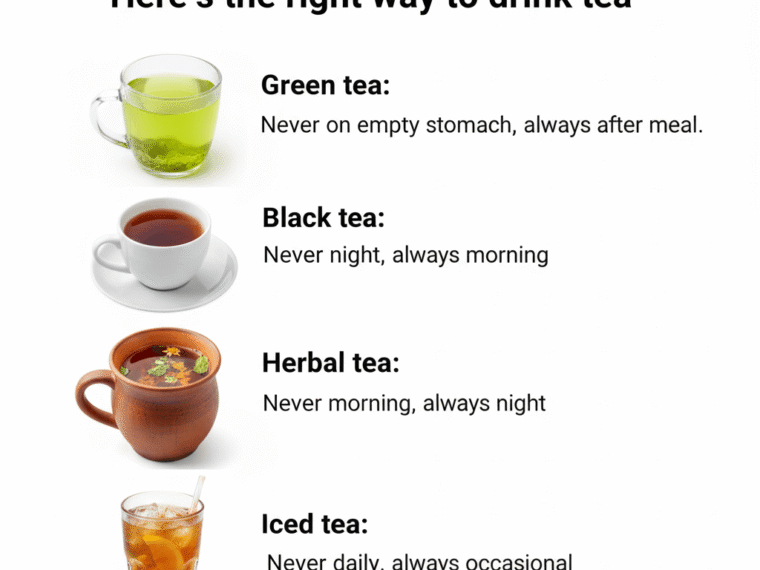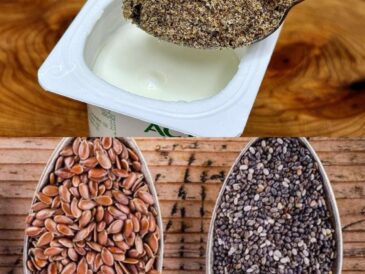✔️ Why herbal tea is perfect at night
Several herbal infusions have calming, sedative, or digestive benefits.
🌙 Chamomile
A study published in Phytotherapy Research found that chamomile improves sleep quality and reduces insomnia symptoms.
🌙 Mint
Peppermint tea relaxes digestive muscles and reduces bloating, making it ideal after dinner.
🌙 Lavender
Lavender tea has proven anxiety-reducing effects according to a 2015 study on mood and relaxation.
✔️ Why not in the morning?
Herbal tea does not provide caffeine, meaning it won’t boost alertness, energy, or focus for most people.
🧊 4. Iced Tea: Never Daily — Only Occasionally
Iced tea is refreshing, but it must be consumed in moderation.
✔️ Why iced tea should not be consumed daily
Most iced teas—homemade or commercial—contain:
- Added sugar
- High amounts of oxalates, which can stress the kidneys
- Caffeine (if made from black tea)
In fact, a medical report from the University of Arkansas linked excessive iced tea consumption to kidney stones due to high oxalate levels.
✔️ When iced tea is OK
Enjoy it occasionally, especially unsweetened versions.
✔️ Health-safer alternatives
- Cold-brewed tea (much lower in tannins and acid)
- Infused water with lemon + mint
- Herbal iced teas
⭐ Scientific Summary at a Glance
| Tea Type | Best Time to Drink | Worst Time to Drink | Key Scientific Reason |
|---|---|---|---|
| Green tea | After meals | Empty stomach | Tannins cause stomach irritation |
| Black tea | Morning | Night | High caffeine disrupts sleep |
| Herbal tea | Night | Morning | Promotes relaxation, no caffeine |
| Iced tea | Occasional | Daily | High oxalate content & often sugary |
🌿 Final Thoughts
Tea is healthy, comforting, and full of natural compounds that support the body. But timing matters. Drinking the right tea at the right moment can:
- Improve digestion
- Boost sleep
- Increase focus
- Reduce anxiety
- Protect your heart
Follow these guidelines, and your daily cup becomes even more beneficial — scientifically and naturally.




